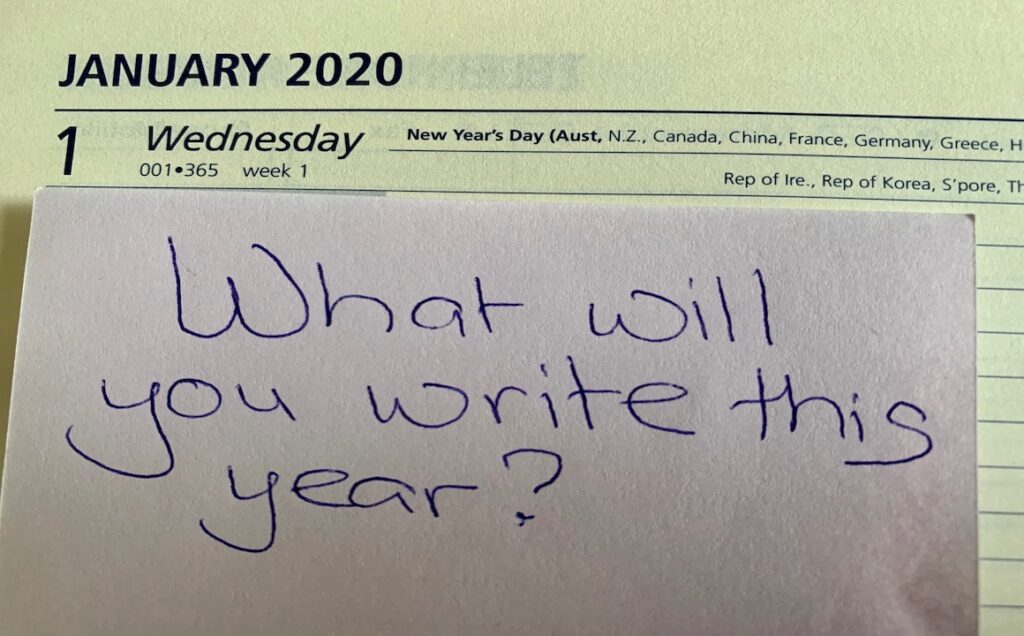Being true to yourself and others through writing

Being true to yourself and others through writing
I think it’s time my past was made public. I’ve always felt ashamed of it, I suppose, though I realize now I shouldn’t feel this way. I haven’t done anything wrong; I’ve just had an illness.
From my memoir A Girl Called Tim
Whether you are seven or 70, writing a diary is a great way to practise being true to yourself and being your own best friend.
We all want to feel trusted and respected by others, but first and foremost we need to trust, respect and be true to our very own self. Many people, especially those of us experiencing eating disorder symptoms, can find such self-transparency very difficult. We tend to be conflict-avoidant. We want take flight from confrontation. Instead of embracing and expressing our healthy-self feelings, we are compelled by fear to suppress and ignore them.
The good news is that you can use your diary as a tool to help you be true to yourself, and to assist healing from an eating disorder or other major life disruptions. For instance, sharing your processing of triggering events, first in your diary and then with trusted others in narrative form, can help you and others to understand where you are at, and to affirm you are on a path that aligns with your healthy self.
The sharing of my diary helped my carers realise things, like… the way I wrote about exercising wasn’t dominated by my eating disorder as many other pages were, so they realised it was (healthy) me talking, not (the illness).
Eve
Your diary can be a trustworthy source, sorter and sifter of thoughts and feelings. Sometimes, persuading a therapist you are, indeed, ill is the first challenge in accessing treatment for an eating disorder, as Dr Ciaran Newell describes:
Some doctors say, ‘you are not too thin’, ‘you are okay’, ‘come back in a month or two and we will check if you have lost more weight’.
…I cannot think of any other area of medicine where you have someone come to tell you that they are ill, and you send them away. It is ridiculous.
Diarists have shared with me how, in desperation, they have pushed their diary under the nose of their doctor, hoping to persuade them of the seriousness of their eating disorder symptoms so they can gain access to health services.
That said, your diary has strengths and limitations as a healer from an eating disorder. Hazards come from two sources – firstly, the eating disorder (ED), which wants to isolate you from your healthy-self, and secondly, the desire to please or appease other people.
If you mask your thoughts and feelings, and tailor your entries because you fear someone you don’t entirely trust may read your work, the diary may lose its ability to hold you accountable to yourself. For instance, if you suspect you are starting to slip or lapse (‘I was too busy to stop for lunch yesterday, so thought I might as well miss it today, too; and tomorrow…’) then writing openly and candidly about this is essential, so you can reason with yourself (‘I recognise this is an ED thought; I will eat lunch today; and tomorrow…’).
By discussing potentially triggering matters in your diary without restraint, you are helping yourself. At the same time, you are being responsible by not sharing such thoughts, that could be triggering for others, in a public arena such as social media.
The Truth, as I See It
We each have our own way of looking at life. Trust is relative and what appears as truth and accuracy for you, in relation to your experiences and perceptions, may not appear that way to a reader of your story. It is important that you feel at ease in sharing your authentic truth, without fear of judgment by negative self or others. Your thoughts deserve recognition and writing them down and sharing them with a trusted mentor or therapist can help you see which thoughts are rational and true, and which are not.
Of course, you can be selective when writing privately in your diary or sharing a personal story with others. After all, we cannot reasonably record every second of every day in our diary. You will focus more on some details and ignore others, either unintentionally or deliberately, and that’s okay. Even so, this keeping of daily observations and reflections in whatever form you decide to record, can be very valuable, revealing what you are thinking and feeling at a particular point in time and providing a record, a series of snapshots and views, inaccessible in any other way.
Evidence-based evaluation of diary-writing or story-telling as therapy in relation to healing from eating disorders is scarce. However, the diary is part of life for many people who are feeling ‘lost’ in a mental illness, and who are learning to manage and heal from their condition. Diary-writing or journaling is applied as a self-help and therapeutic tool in many treatment settings:
After 15 years in private practice I took a survey of all my patients. I discovered that
of those who had recovered the far majority said they used a journal and found
it instrumental in their healing. I found this incredibly interesting and have been using
journaling as an important recovery tool ever since.
Carolyn Costin
Some therapies incorporate forms of diary writing as part of their homework, but few specialize in diary therapy, which relies almost solely on writing in a diary. A primary focus in diary writing therapy, as Gillie Bolton notes in Writing Works, is to develop intimacy with, and be truthful to, the self. This process, when shared with the therapist, can help to relieve and release feelings of shame and stigma that may be the root of resistance to engaging in therapeutic work.
Guarding Against ‘Bad Stuff’
Taylor explains:
Now, as my recovery has grown, I inhabit my true self more and the disorder less. Now, when I see disordered thoughts creep into my writing, I less frequently identify that from a place of, ‘Oh, that’s ED’. Instead I start with: ‘Wait. That’s not me.’
When experiencing low mood, diary writing can foster more positive feelings. Writing and reciting (in your mind or better still, aloud) favourite mantras, such as ‘the show must go on’, or ‘calm is good’, or ‘will I remember this little problem a year from now? No, so I will let it go’, is one way to propel yourself forward. Noting completion of tasks, however small, like brushing your hair, or cleaning your teeth, is helpful too.
Such achievements may seem negligible to others, but monumental to you. Other small but majestic steps might include getting out of bed, having a shower, getting dressed, calling a friend, going for a walk, or keeping an appointment. By recording each self-affirming action, your diary can confirm that in fact your day is not a total waste; you are getting somewhere.
Write about ‘Good Stuff’ too
While the process of diary writing can help to identify patterns and themes of your eating disorder, it can also compound feelings of futility if you record only the eating disorder or self-defeating thoughts. Writing only about ‘bad stuff’ also may negatively condition you to the diary. It may work against you to the point where the diary becomes an agent for ED, rather than a confidante for you. Sigh, this happened to me – read on, to find out how I overcame this challenge.
ED, of course, wants you to focus on having a bad, sad time. ED caused me to have many bad and sad times, for many, many years. The turning point came when I began to share my writing, if not fully perhaps in summary form or letter, as a basis for discussion with my therapist, I began to be more self-aware and was able to start guarding against and silencing this negativity.
Over time, my diary helped me to recognize and accept when I needed to ask for help; it helped to clarify thoughts, and to communicate with my psychiatrist. Instead of helping ED, the diary began to help me chisel a crack in the wall of isolation that the illness had built in my mind. To forge a crack and release a glimpse of hope and freedom was a major victory.
The diary remained a place in which to confide, but also became a medium for reaching out. For example, I was well along the recovery path when reflection on diary entries helped me to admit I was lapsing:
Dear (Psychiatrist),
`Please may I have an appointment to see you, as soon as possible? I am thoroughly confused and don’t know which direction to take.
Facts (I’ll TRY to keep to FACTS):
My eating is atrocious …. I feel starved for a feeling of closeness (in a relationship) ….
I try not to have mood swings, but they just happen (and I eat, and the moods get worse).
I have a great urge to live very gently, doing only what I can each day without losing control, but I don’t know what to do. My horrid eating habit clouds my clear thinking. I need your direction!’
Author’s letter to psychiatrist, 1989
Drawing on my diaries in letter writing to my trusted therapist helped me to cope, by providing a connection with a person of trust, even when I didn’t know which way was ‘forward’.
Sources of optimism and positive influences vary for each of us. Minute observations, like describing a new bud on a rosebush, a butterfly’s wings, or children’s chatter during play, can lighten the outlook. In such moments, however brief, ED is overridden; the illness is present but silent, and therefore less substantial and less in control. The challenge is to seek, observe and record more sunny moments.
Date Your Diary, but Make No Rules
There are only two things to remember in diary keeping: firstly, date each entry, and secondly, make no rules. If you have an eating disorder, or are feeling depressed or anxious, writing rules to live by can be counter-productive. For instance, if you feel compelled to fill a page, write for xx minutes, make no errors, or note xx positive thoughts for the day, your anxiety may increase. Your life has been ruled by the rules dictated by your illness and the last thing you want is more rules as you re-connect with self.
Treat yourself with love and self-compassion in 2020. If you make no rules, you will avoid feeling awful because, let’s be honest, rules are only made to be broken and to make us feel like a loser.
It is much better to focus on healing our healthy self from the inside out, through writing and connecting, rather than demanding we behave in this way or that way from the outside in. In this regard, boundaries can be useful.
More about this next time!
Share Your Experience
Share your experience in diary writing. Have you found it useful? What have you discovered about yourself through diary-writing? Write to The Diary Healer – send your email to june@junealexander.com
Want a Writing Mentor?
Would you like guidance in writing your story, or in sorting your healthy thoughts and unhealthy thoughts? Send an email to june@junealexander.com
Reference
Excerpts in this post are drawn from my book, Using Writing as a Therapy for Eating Disorders.





